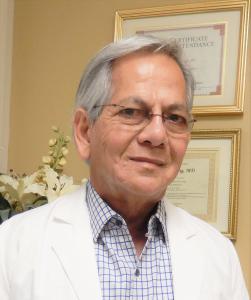Social Phobia, explained by Pediatrician Dr. Kenneth Rebong in a new published article
In his new article, Pediatrician Dr. Kenneth P. Rebong provides necessary information relating to social phobias that every parent should know about.
Dr. Kenneth Rebong has published an overview article on this condition. The complete article will be published on the Blog of Dr. Rebong at https://drkennethrebong.wordpress.com/
To learn more about social anxiety disorder, continue to read this insightful article by Dr. Rebong.
What Is Social Phobia?
Social phobia is one of the most pervasive mental disorders that instills fear in the sufferer of being judged, constantly watched, or negatively evaluated by others, most probably in a social situation.
While most commonly, it simply starts off with a mere feeling of timidity, when it goes untreated, it can create emotions of extreme nervousness which may destroy both the personal and professional life of the sufferer.
When Does It Occur?
As stated above, social phobia kicks in when one is in a social environment. Some of the common situations where one may feel social phobia is:
* Giving presentations in front of a small or large group of people
* Talking to strangers
* Going to parties or social gatherings
* Going to school or work
* Facing crowds
* Using public washrooms
* Eating in front of or among people
* Initiating conversations
What Are the Common Signs and Symptoms of Social Phobia?
People with social anxiety disorder tend to exhibit the following emotions when asked to perform or be around others:
* Feeling nauseous and sick
* A rapid heart rate
* Sweating or trembling
* Unable to make eye contact and speak with a timid voice
* Be overly self-conscious in front of people
* Feeling awkward and embarrassed
* Scared that people will judge them
* Staying far away from areas where there are many people
* Afraid to talk to other people, especially to strangers.
What Are the Causes of Social Phobia?
Social phobia runs in families; however, it is not entirely sure what causes only some of the family members to suffer from it while others don’t exhibit any of the symptoms. Research shows that various parts of the brain are responsible for feeling fear and anxiety. The overworking of these body parts may result in social anxiety disorder.
It is also believed that underdeveloped social skills can play a huge role in social anxiety. For instance, a lack of developed social skills may make one feel self-conscious when required to face a crowd for the first time. They may not feel comfortable talking to people since they are not used to it and may feel discouraged to do it again in the future.
The good news is that social anxiety disorder is treatable and can be cured through psychotherapy, support groups, and medication such as antidepressants, anti-anxiety medications, and beta-blockers.
About Kenneth Pomar Rebong, MD
Dr. Kenneth P. Rebong, a medical doctor in San Jose, California, specializes in Pediatrics and Adolescent Medicine. The scope of his practice is from age 0 to 21. He graduated from FEUNRMF University in Manila, Philippines and completed his residency at Rutgers University in New Brunswick, New Jersey, USA.
References
Blog: https://drkennethrebong.wordpress.com/
News: https://hype.news/dr-kenneth-pomar-rebong/
https://medicogazette.com/dr-kenneth-pomar-rebong
https://hippocratesguild.com/dr-kenneth-pomar-rebong
https://www.linkedin.com/in/kenneth-pomar-rebong-md-4484a938/
Kenneth Pomar Rebong, MD
Kenneth Pomar Rebong, MD
+ + +1 408-729-3232
email us here
Visit us on social media:
LinkedIn
What are social anxiety symptoms and how can we manage them?
Legal Disclaimer:
EIN Presswire provides this news content "as is" without warranty of any kind. We do not accept any responsibility or liability for the accuracy, content, images, videos, licenses, completeness, legality, or reliability of the information contained in this article. If you have any complaints or copyright issues related to this article, kindly contact the author above.





